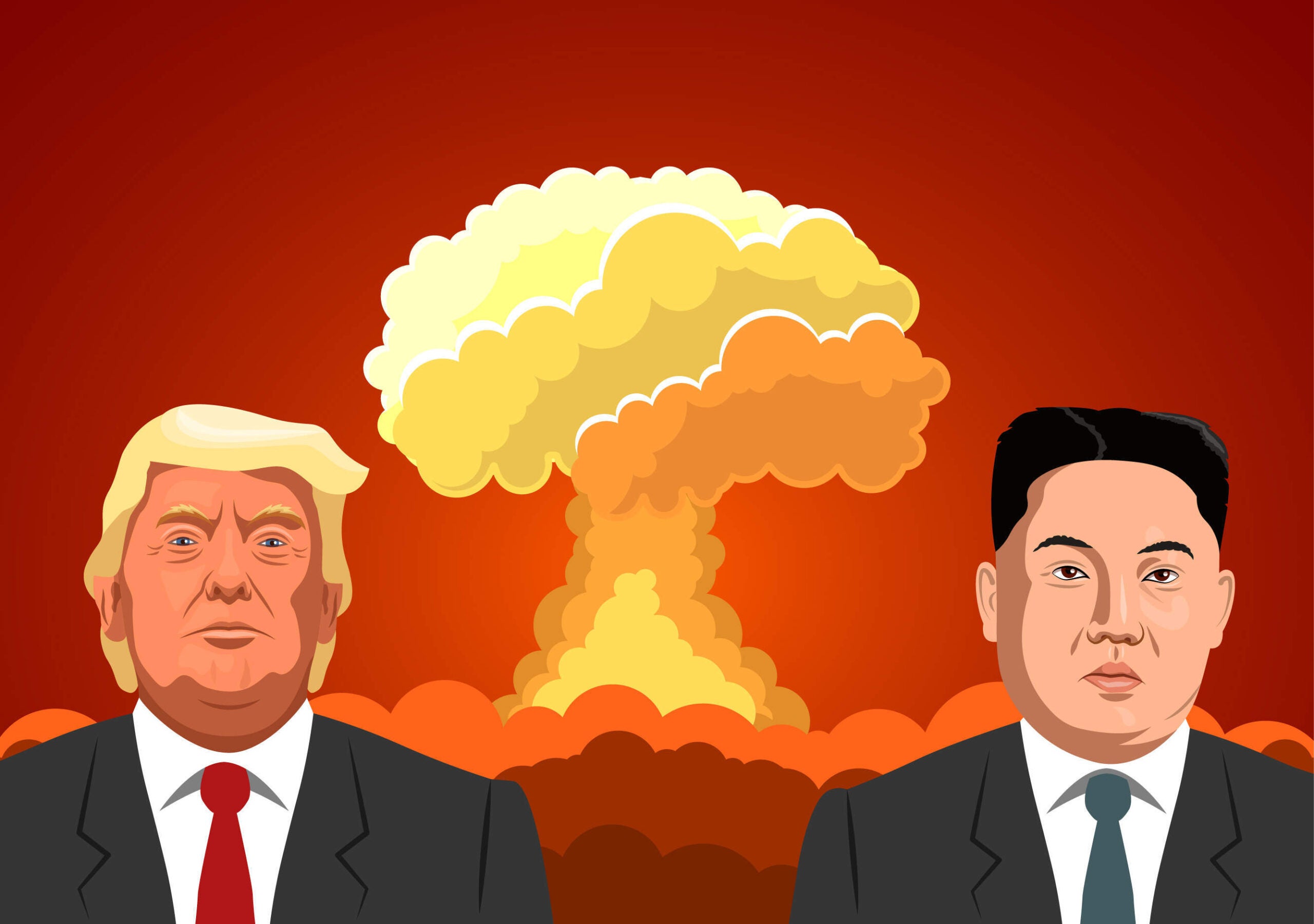
The US and North Korea are swapping threats about nuclear weapons and everyone is worried we’re soon going to be in the midst of a nuclear war.
Here’s what’s gone down in the past 24 hours.
America vs North Korea stage one: the North can build nuclear warheads
A report was published by the US government’s Defence Intelligence Agency this week that says that the communist state finally has the technological capability to build nuclear warheads that can be mounted on missiles.
Whilst we know that North Korea has been expanding its nuclear weapons program in recent years, the point is now that these warheads are small and light enough to be carried on missiles – a major hurdle in terms of weapons development.
The list of hurdles keeping the country from directly threatening the continental US (or virtually any part of the world) with an intercontinental ballistic missile (ICBM) has dwindled significantly.
How well do you really know your competitors?
Access the most comprehensive Company Profiles on the market, powered by GlobalData. Save hours of research. Gain competitive edge.
 Company Profile – free sample
Company Profile – free sampleThank you!
Your download email will arrive shortly
Not ready to buy yet? Download a free sample
We are confident about the unique quality of our Company Profiles. However, we want you to make the most beneficial decision for your business, so we offer a free sample that you can download by submitting the below form
By GlobalData
In addition, the country successfully pulled off an ICBM launch in July earlier this year.
A Hwasong-14 missile travelled 580 miles and reached an altitude of 1,741 miles in 37-minutes. This puts Alaska, Japan, and even Moscow within North Korea’s firing line.
Stage two: Pyongyang is hit with new United Nations sanctions
The UN has imposed new sanctions on North Korea because of its growing weapons program and missile tests.
The new measures will cut around $1bn worth of North Korean exports, about a third of the country’s export revenue each year.
The US ambassador to the UN, Nikki Haley, said:
This resolution is the single largest economic sanctions package ever levelled against the North Korean regime.
Pyongyang responded with a statement via its state news agency, KCNA, saying the sanctions were a “violent violation of our sovereignty” and part of a “heinous plot to isolate and stifle the country”.
As well, it threatened to take action and said the sanctions were a crime for which the US would pay “thousands of times”.
Stage three: US president Donald Trump hits back
Trump is obviously concerned about what would happen now North Korea appears to be a serious nuclear threat.
“North Korea best not make any more threats to the United States, They will be met with fire and the fury like the world has never seen,” said Trump on 8 August.
Daryl Kimball, the head of the Washington-based Arms Control Association told The Guardian, it was counter-productive for Trump to threaten North Korea.
What we need is a dialogue to reduce tension and avoid catastrophic miscalculation. We are currently on the road to a conflict and we have to get to the off-ramp.
Stage four: North Korea threatens US territory Guam…
After president Trump’s fire and fury comments, Kim Jong Un is now supposedly planning a missile strike on a US Pacific territory, Guam, in Micronesia.
The territory is home to a US military base and has a population of 162,896. It is around 2,100 miles away from the communist state.
North Korea, via KCNA, said it was “carefully examining” a plan to strike Guam and threatened to create an “enveloping fire” around the territory unless the US stops threatening it.
Stage five: … Before threatening to bomb the US mainland
Not content with just threatening US territory, Pyongyang turned its attention to the US mainland, earlier today.
Another statement from KCNA, this time says that North Korea would “turn the US mainland into the theatre of a nuclear war”, if it were to uncover any sign of an impending US attack.
What do other states think?
South Korea’s president, Moon Jae-in, whose parents were refugees from North Korea, has said in the past that he wants to open up a dialogue with the separated state.
After the latest mishaps, however, he has said South Korea needs to urgently improve its military so it can defend itself against a North Korean attack.
The Yonhap news agency reported that Moon told military officials:
I believe we might need a complete defence reform at the level of a rebirth, instead of making some improvements or modifications. Another urgent task now facing us is securing defence capabilities to counter North Korea’s nuclear and missile provocations.
Cambodia’s foreign minister, Prak Sokhonn, has said the Association of Southeast Asian Nations (Asean), are not happy with the missile tests.
During a meeting with the North’s foreign minister, Ri Yong Ho, Sokhonn asked the North to soften its position.
He told reporters:
We sent a message to them that all Asean countries are not happy with the actions of North Korea that still continue to violate the UN resolution. It’s an insult to the international community, as a whole and it’s a threat to peace and stability of the region.
How has the market reacted?
Bloomberg reports that the markets are more fearful of Donald Trump than Kim Jon Un. South Korea’s won fell 0.9 percent earlier today, as a reaction to the provocations.
However, it says that investors aren’t too concerned over North Korea because they are used to dealing with threats from the ostracised state.
Donald Trump, on the other hand, can still cause wobbles in the market.
Is this back to the Cold War then?
During the Cold War, there were concerns that the US and Russia would engage in a nuclear war at any time.
According to a biography published about then-US president Richard Nixon, he had once boasted that he could “press a button and in 20 minutes, 50m Russians would be dead.”
But back then, we had “mutually assured destruction”, the idea that the world would be destroyed if one state attempted to use nuclear weapons, which prevents them from being used.
Emil Dall, research fellow in proliferation and nuclear policy at the think tank Royal United Services Institute, told Verdict, that we can’t rely on this anymore.
We’re not in the Cold War anymore and we should move forward from that Cold War paradigm. Back then, we didn’t have a country like North Korea. So we’re seeing a different kind of dynamic, and we’re not just talking about communism vs the West when we’re talking about nuclear weapon risk anymore.







